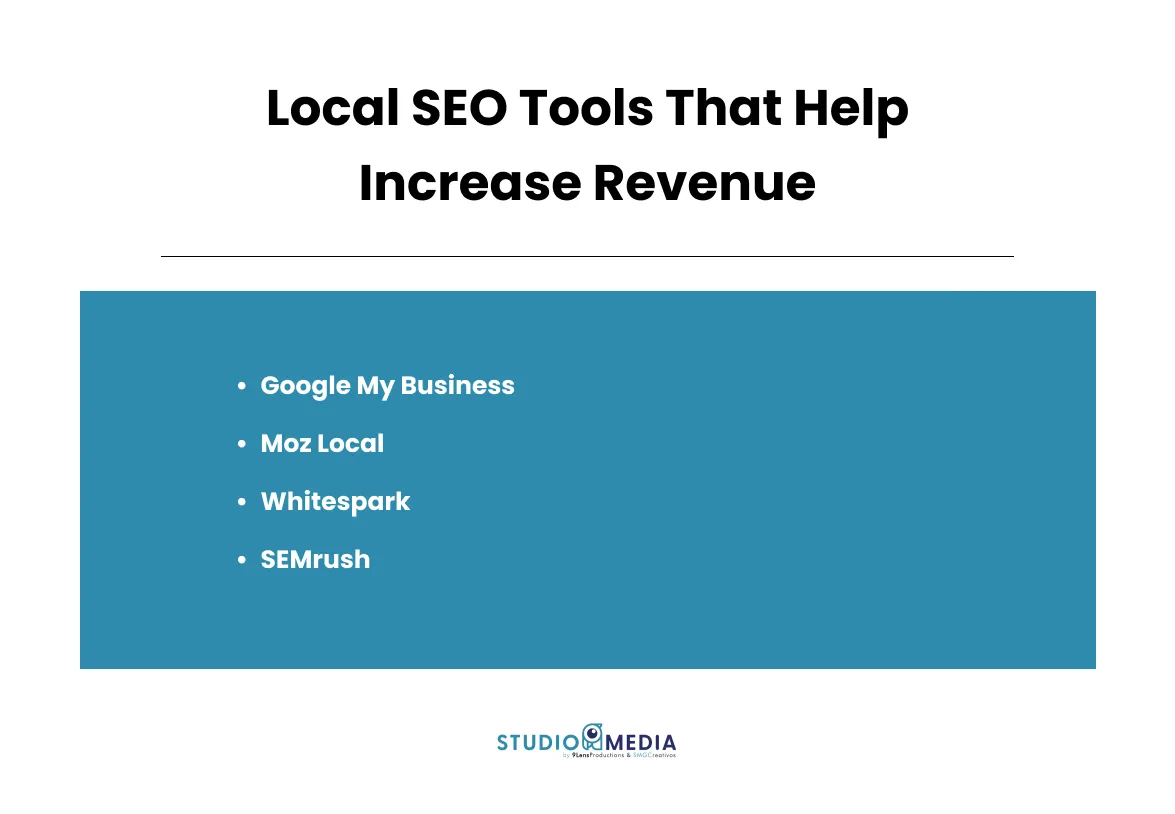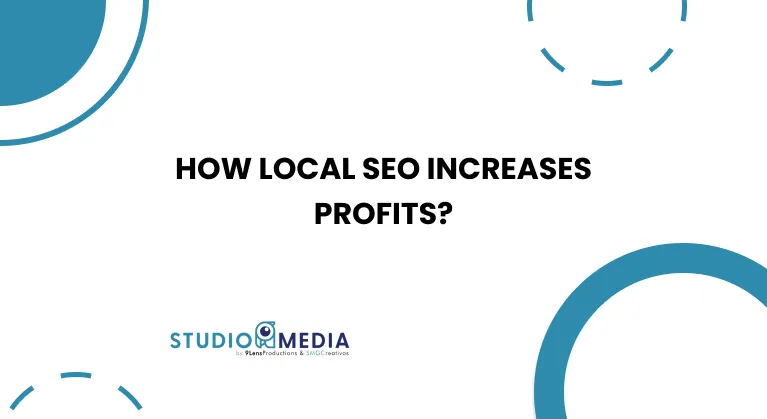Local SEO is a digital optimization strategy that focuses on improving a business’s visibility in local search results. When people search for specific products or services in their area, local SEO ensures that your business appears in the most relevant results. This strategy is essential for attracting potential customers who are physically near your company and have a clear intent to purchase.
Imagine someone searching for «pizza near me.» If your business has implemented local SEO, you’re more likely to appear in those results, both in Google and on maps, significantly increasing the chances of attracting that customer.
Key Strategies for Implementing Successful Local SEO
To achieve effective local SEO, it’s important to follow certain strategies that have proven to be highly effective:
- Google My Business (GMB) Optimization: Having an updated and well-managed profile on Google My Business is fundamental. Make sure to include all key information about your business (name, address, phone number, hours of operation, etc.). Additionally, fresh posts and photos help keep your profile active and attractive.
- Local Keywords: Ensure you include geographic terms in your content and tags. For example, if you offer services in Madrid, phrases like «plumbing services in Madrid» or «best plumber in downtown Madrid» can make a difference.
- Local Listings and Directories: Listing your business on trusted local directories also increases your visibility. Directories like Yelp or Yellow Pages help improve your authority in local search.
Local SEO Tools That Help Increase Revenue
Local SEO tools are essential for managing and improving your online presence effectively. Some of the most useful include:
- Google My Business: As mentioned earlier, this tool is the foundation of local SEO. It allows you to manage how your business appears on Google Search and Google Maps.
- Moz Local: Helps you maintain consistency in your business information across multiple directories, which is crucial for building credibility and ranking well in local searches.
- Whitespark: This tool helps you find local citation opportunities, increasing your web presence.
- SEMrush: Although widely known for general SEO use, SEMrush also offers functionalities to monitor local SEO, such as tracking location-specific rankings.
These tools not only improve visibility but also enhance user experience by making information easily accessible.

How Reviews and Online Reputation Boost Local SEO?
Online reviews play a critical role in local SEO, not only because they directly influence consumer decisions, but also because Google considers them a ranking factor. The more positive reviews your business has, the better your ranking will be.
- Generating Reviews: Encourage your customers to leave feedback after making a purchase or enjoying a service. A satisfied customer is more willing to share a positive experience, which in turn attracts new buyers.
- Responding to Reviews: It’s not only important to receive reviews but also to interact with customers by responding to both positive and negative comments. This improves your business’s reputation and shows that you care about customer satisfaction.
The Impact of Local SEO on Business Growth
Local SEO doesn’t just increase a business’s visibility; it also has a direct impact on revenue. By improving your ranking in local searches, you’re attracting customers who are already interested in your products or services and have a high likelihood of converting.
Businesses of all sizes can benefit from local SEO. From small shops to large franchises, each can see an increase in visits and sales if they properly implement these tactics. Local SEO essentially transforms digital traffic into physical traffic, which is crucial for businesses that rely on local customers.
Advanced Local SEO Tactics to Gain Visibility
There are more advanced tactics you can implement to further enhance your local SEO:
- Geofencing: Allows businesses to target customers in a specific geographic location through notifications or ads.
- Relevant Local Content: Creating content that answers local users’ questions or aligns with local events and news can help capture more local traffic.
- Local Backlinks: Obtaining links from local websites is a powerful strategy for increasing your relevance in the region.
How to Measure Local SEO Success with Key Metrics?
Measuring the success of your local SEO efforts is essential to ensure you’re on the right track. Key metrics include:
- Visits to Your Google My Business Profile: Check how many people have viewed or interacted with your profile.
- Local Organic Web Traffic: Use Google Analytics to see how many visits are coming from local searches.
- Calls and Physical Visits: Google My Business also allows you to track how many calls or direction requests come from your listing.
These metrics are essential for adjusting strategies and ensuring you’re getting a positive return on investment.
The Role of Local Keywords in Increasing Revenue
The use of local keywords is crucial for search engines to identify the geographic relevance of your business. Incorporating specific terms related to your location within the content, meta descriptions, headers, and alt tags of images helps Google and other search engines rank your business better for local searches.
For example, if you own a clothing store in Barcelona, terms like “clothing store in Barcelona” or “best fashion store in Barcelona” will attract people interested in finding such services nearby. By ranking well for these searches, you significantly increase the chances of users visiting your store, and as a result, boost sales.
How Local Business Listings Help Increase Visibility and Sales?
Local business listings on directories like Yelp, TripAdvisor, or Yellow Pages not only provide exposure on popular platforms but also act as signals to search engines that your business is relevant in a specific location. This enhances your authority and increases the likelihood of appearing in search results.
The consistency of information across these listings is key to success. Ensure that the name, address, and phone number (NAP) are identical across all sites where your business is listed. When search engines notice consistency in local directories, they assign greater credibility to your business, which can increase both traffic to your website and your physical store, ultimately leading to more revenue.
The Importance of Mobile SEO in Local Searches
Mobile SEO is another critical factor in increasing revenue through local SEO. A large portion of local searches are conducted from mobile devices, especially when users are looking for something immediate, like «restaurant near me» or «car repair service.»
A mobile-optimized website with responsive design, fast loading times, and easy navigation helps users find the information they need quickly. If your site is not mobile-optimized, you’ll lose potential customers who could have turned into sales. Good mobile SEO also improves your ranking on Google, as the algorithm prioritizes websites that offer a good mobile experience.
How Map Optimization Increases Traffic and Conversions?
Optimizing your business on map platforms like Google Maps and Apple Maps is another effective way to increase profits through local SEO. More and more people rely on digital maps to find nearby businesses, read reviews, and get directions.
Including accurate and updated information on these maps, such as opening hours, products or services offered, and photos of your business, can attract more potential customers. Additionally, interactions with these maps, such as requests for directions and clicks on the phone number, are clear conversion signals. Map optimization not only improves your visibility but also makes it easier for users to convert into customers when they find you while they’re nearby.
The Role of Social Media in Enhancing Local SEO and Boosting Profits
Social media platforms play a significant role in supporting local SEO efforts and ultimately increasing business profits. Social signals, such as likes, shares, and engagement on platforms like Facebook, Instagram, and Twitter, contribute to your overall online presence. When you create content that resonates with your local audience and encourages interaction, it enhances your visibility, which can indirectly improve your local SEO rankings.
For instance, sharing content that highlights your involvement in local events, promotions, or collaborations with other local businesses can drive traffic to your website or store. Engaging with customers via social media also builds trust and brand loyalty. By interacting with your audience, you encourage more user-generated content like reviews, recommendations, and tags, which are valuable assets for local SEO.
How Voice Search Optimization is Changing Local SEO and Increasing Revenues?
Voice search optimization is becoming increasingly important as more users rely on voice-activated devices like smartphones and smart speakers (e.g., Amazon Alexa, Google Assistant) to search for local services. This trend has a direct impact on local SEO, as voice search queries tend to be more conversational and specific, often including phrases like «near me.»
To optimize for voice search, businesses should focus on using natural language and question-based keywords that align with how people speak. For example, instead of targeting the keyword “best restaurant,” you might optimize for “What is the best restaurant near me for dinner?” This type of optimization helps your business appear in voice search results, especially for local queries, where users are looking for immediate solutions.
Voice search also emphasizes the importance of being mobile-friendly and having accurate information in directories like Google My Business, as users rely on these details to make quick decisions. When businesses optimize for voice search, they capture an additional audience segment, which can lead to increased traffic and, ultimately, higher sales.







